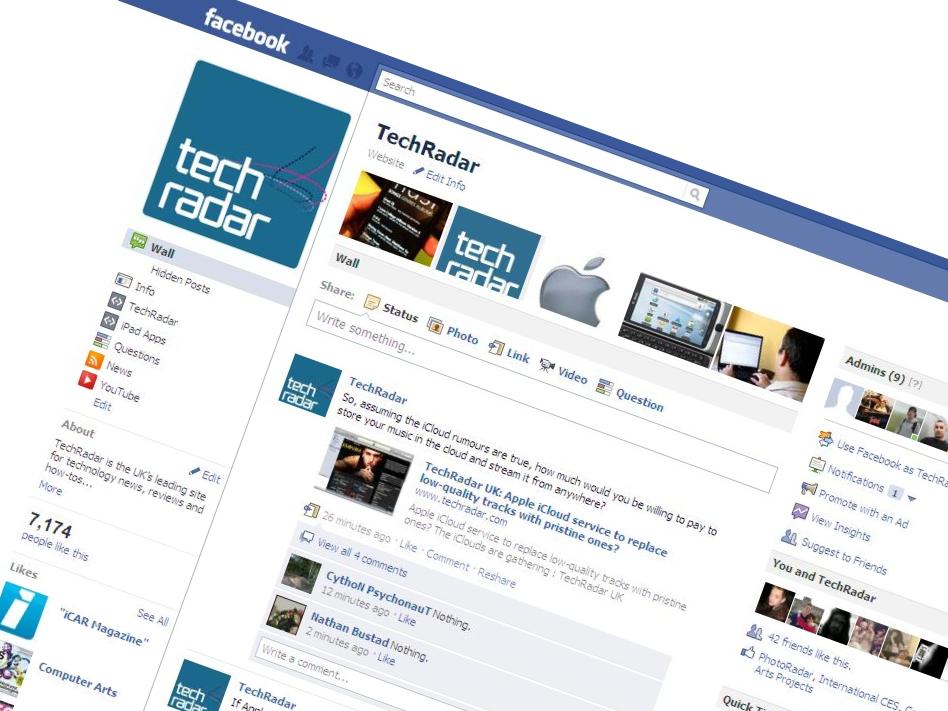
For many people, social networks are the internet: they'll spend all day on Facebook or Twitter, with the odd break to visit an online shop or do some work.
But the big networks aren't satisfied. They want more. Much more.
They want your kids. Not literally, of course. Facebook founder Mark Zuckerberg doesn't like the way the US Children's Online Privacy Protection Act prevents Facebook from giving accounts to under-13s. But it's not because he wants to make money from advertisers desperate to target the elusive and big-spending pre-teen market. No sirree.
It's because getting the wee ones on Facebook will make them clever, or something. "In the future, software and technology will enable people to learn a lot from their fellow students," Zuckerberg says.
Not that the law is actually preventing kids from using Facebook: as Chris Smith reports, around 7.5 million pre-teens are already on the site because they lied about their age.
Social networks' tentacles are wrapping themselves around more and more of the internet.
Bing will integrate Facebook data to try and make search results more relevant, brands can use the revised Facebook photos system to see what people are saying about them, phones are becoming increasingly Facebook-friendly and it seems that Facebook and Spotify are teaming up so that you can play music through the site.
Sign up for breaking news, reviews, opinion, top tech deals, and more.
Facebook's even in the dictionary.
Not everyone approves: Wikileaks founder Julian Assange says that "Facebook in particular is the most appalling spying machine that has ever been invented" and claims that "Here we have the world's most comprehensive database about people, their relationships, their names, their addresses, their locations, their communications with each other, their relatives, all sitting within the United States, all accessible to US intelligence."
TweetDeck signs Twitter deal
Facebook isn't the only social network that's been in the news this week, of course. It turns out that Twitter isn't just for breaking superinjunctions - you can chat on it too!
Although Twitter has an enviable ecosystem of third-party clients, it's becoming increasingly clear that Twitter would much prefer it if everyone used its own software - something we highlighted back in March. It's already taken Atebits' excellent Tweetie and made it an official Twitter client; now, the power users' favourite TweetDeck has been taken under Twitter's wing too.
TweetDeck creator Iain Dodsworth's words are interesting: "The mainstream Twitter user-base is well catered for by twitter.com and the official mobile clients," he says. "And by becoming part of the official platform, TweetDeck will now fill that role for brands, influencers, the highly active and anyone that just needs 'more power'." Is it just us, or does that imply that there's no room for third-party clients any more?
Although Facebook and Twitter are very different networks and they're doing very different things, they've both got something very big in common: they'd really like to have some more money.
By keeping Twitter activity inside official clients, Twitter can push sponsored tweets, display ads and other money-making wheezes; by getting everyone from birth to death to spend all day every day in Facebook, Mark Zuckerberg can simultaneously make some cash from targeted advertising while distracting us from the fact that he's building Skynet.
The TechRadar hive mind. The Megazord. The Voltron. When our powers combine, we become 'TECHRADAR STAFF'. You'll usually see this author name when the entire team has collaborated on a project or an article, whether that's a run-down ranking of our favorite Marvel films, or a round-up of all the coolest things we've collectively seen at annual tech shows like CES and MWC. We are one.